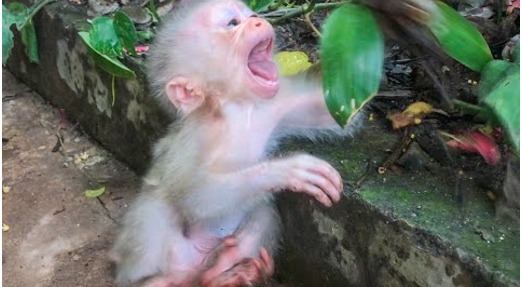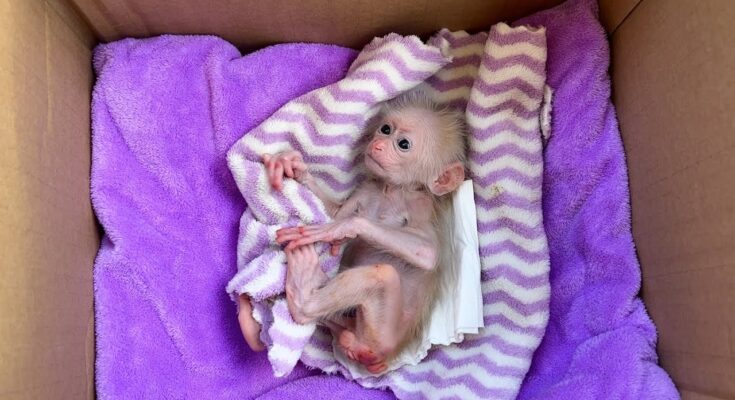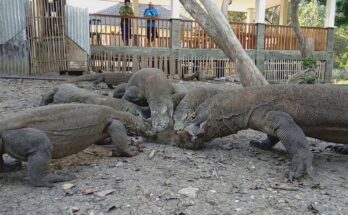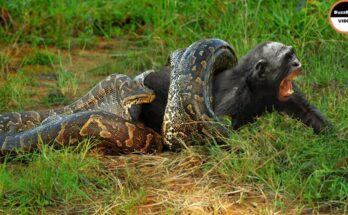Feeding a baby monkey in the USA comes with legal, ethical, and practical challenges. While it may seem tempting to care for one as a pet, monkeys are wild animals with complex needs. Before considering feeding a baby monkey, it’s crucial to understand the legal restrictions, dietary requirements, and long-term responsibilities.
Is It Legal to Own and Feed a Baby Monkey in the USA?
Laws regarding monkey ownership vary by state. Some states allow private ownership with permits, while others have strict bans. States like California, New York, and Colorado prohibit primate ownership, while states like Florida and Texas may allow it under specific regulations. Before feeding or caring for a baby monkey, check local laws to avoid legal trouble.
What Do Baby Monkeys Eat?
Baby monkeys rely on their mother’s milk in the early months, making proper feeding a challenge for humans. If orphaned, they require a specialized diet, including:
- Formula Milk – Special primate formulas mimic mother’s milk, as cow’s milk is unsuitable.
- Soft Fruits & Vegetables – Introduced gradually as the baby grows.
- Protein Sources – Insects or small amounts of eggs to support development.
Without expert guidance, improper feeding can lead to malnutrition, digestive issues, or even life-threatening conditions.
Challenges of Feeding and Raising a Baby Monkey
- High Maintenance – Baby monkeys require constant care, warmth, and specialized diets.
- Social and Emotional Needs – Monkeys need companionship from their species for proper development.
- Health Risks – Monkeys can carry zoonotic diseases, posing risks to human caretakers.
- Long-Term Responsibility – Monkeys live for decades and become more challenging to manage as they grow.
Ethical Considerations
Keeping a monkey as a pet may seem cute, but it can contribute to the illegal wildlife trade. Many baby monkeys in captivity are taken from their mothers, leading to suffering in both the pet trade and wild populations. Instead of feeding a baby monkey at home, consider supporting ethical primate sanctuaries.
Conclusion
While it may be legally possible in some states, feeding a baby monkey in the USA is not recommended due to legal, ethical, and practical concerns. Monkeys belong in their natural habitats or professional sanctuaries where they receive proper care. If you’re passionate about primates, consider supporting wildlife conservation efforts instead of keeping one as a pet.
Why Are Monkeys Important in Forests?
– by lbxrj

Monkeys play a crucial role in maintaining the health and balance of forest ecosystems. As highly active and intelligent animals, they contribute to seed dispersal, pest control, and biodiversity. Their presence ensures the survival of many plant and animal species, making them essential to the environment.
1. Seed Dispersal: Helping Forests Grow
Monkeys eat a variety of fruits, and their droppings spread seeds across large areas. This process helps:
- Regrow forests by planting new trees naturally.
- Increase plant diversity by distributing different species of seeds.
- Support wildlife by creating food sources for other animals.
Without monkeys, many plant species would struggle to reproduce, leading to a decline in forest vegetation.
2. Controlling Insect Populations
Monkeys help control insect populations by feeding on insects, larvae, and small pests. This benefits forests by:
- Reducing crop damage caused by excessive insect growth.
- Preventing tree diseases that spread through insect infestations.
- Maintaining ecosystem balance by keeping prey populations in check.
By acting as natural pest controllers, monkeys help keep forests healthy and thriving.
3. Supporting the Food Chain
Monkeys are a key part of the forest food web. They serve as prey for predators such as big cats, birds of prey, and large snakes. Their role in the food chain helps:
- Maintain predator populations by providing a natural food source.
- Prevent overpopulation of smaller animals by competing for shared resources.
- Sustain ecosystem balance by interacting with different species.
4. Spreading Fungi and Nutrients
Monkeys unknowingly spread beneficial fungi through their movement and feeding habits. This improves soil quality by:
- Helping trees absorb nutrients through fungal root connections.
- Enhancing forest growth by improving plant health.
- Recycling organic matter through their waste and decomposition.
5. Indicators of Forest Health
Monkeys are excellent indicators of forest health. Their population trends can signal environmental changes, including:
- Deforestation and habitat loss.
- Climate change effects on biodiversity.
- Human impact on wildlife conservation.
By monitoring monkey populations, scientists can assess the condition of forests and take action to protect them.
Conclusion
Monkeys are essential for maintaining the balance of forest ecosystems. From seed dispersal to pest control and biodiversity support, they play a vital role in keeping forests thriving. Protecting monkey populations ensures the survival of countless plant and animal species, making conservation efforts critical for a healthier planet.



